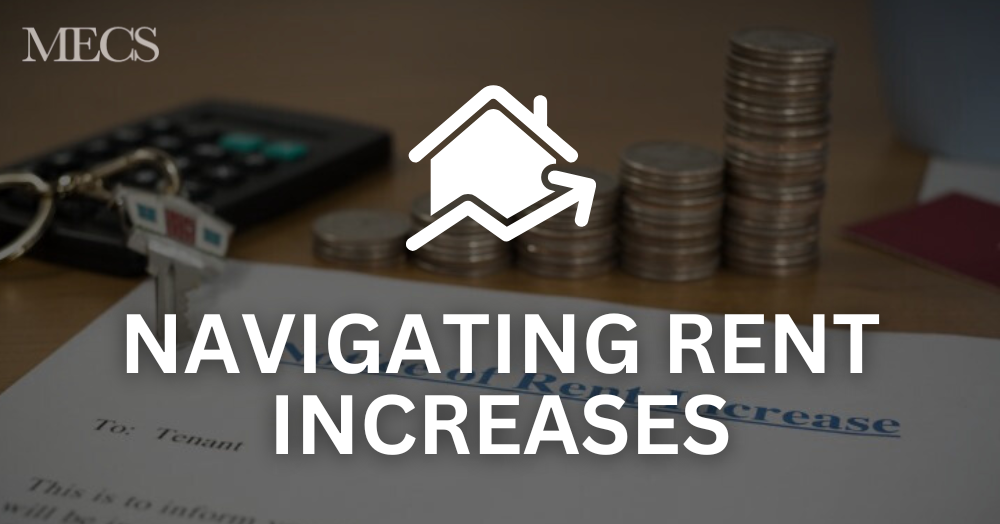Rent increases can be a source of stress & financial strain for many individuals and families. A sudden rent hike can disrupt your budget and leave you feeling overwhelmed. However, with careful planning and proactive measures, you can navigate these challenges and ensure that you're making the best decisions for your financial well-being.
Review your lease agreement:
When faced with a rent increase, the first step is to thoroughly review your lease agreement. Check the terms and conditions regarding rent adjustments and notice periods. This will give you a clear understanding of your rights as a tenant and the landlord's obligations. Ensure that the rent increase aligns with the terms outlined in your lease.
Communicate with your landlord:
Open and honest communication with your landlord is essential when dealing with a rent increase. Reach out to them to express your concerns and discuss the reasons behind the increase. Enquire if there is any "room" for negotiation or if there are any alternatives available. Sometimes, landlords may be willing to negotiate a smaller increase or offer additional amenities to offset the higher cost.
Research comparable rental prices:
To determine whether the rent increase is reasonable, research comparable rental prices in your area. Look for similar properties and compare their rental rates. Websites, local real estate agents, or rental apps can provide valuable insights. Armed with this information, you'll have a better understanding of whether your increase is in line with market rates or if it's an excessive hike.
Evaluate your budget:
When facing a rent increase, it's crucial to reassess your budget. Analyse your income, expenses, and financial goals to determine if the increase is manageable within your current financial situation. Identify areas where you can cut back or make adjustments to accommodate the higher rent. It might also be helpful to seek advice from a financial advisor or housing counsellor to explore your options.
Consider negotiating a longer lease:
If you have a good relationship with your landlord and are willing to commit to a longer lease, you can propose the idea of signing a longer-term lease in exchange for a more reasonable rent increase. Landlords often appreciate stable, responsible tenants and might be open to negotiating under such circumstances.
Explore roommate or subletting options:
If the rent increase is too burdensome to handle alone, consider finding a roommate or exploring subletting options. This can help you split the rent and alleviate some of the financial pressure. However, be sure to consult your lease agreement and inform your landlord about any changes to ensure you're in compliance with the terms.
Research local rental laws:
Familiarise yourself with the rental laws and regulations in your area. Some regions have rent control laws or limitations on rent increases, protecting tenants from exorbitant hikes. Knowing your rights will empower you during negotiations and help you make informed decisions.
Conclusion:
Facing a rent increase can be challenging, but it's important to remember that you have options and resources available to you. Remember to stay proactive, seek advice when needed, and prioritise your financial well-being.
In the worst-case scenario, if the rent increase is unaffordable or unreasonable, you might have to consider exploring alternative housing options. Get in contact now to see what we have available.
0121 681 6327

